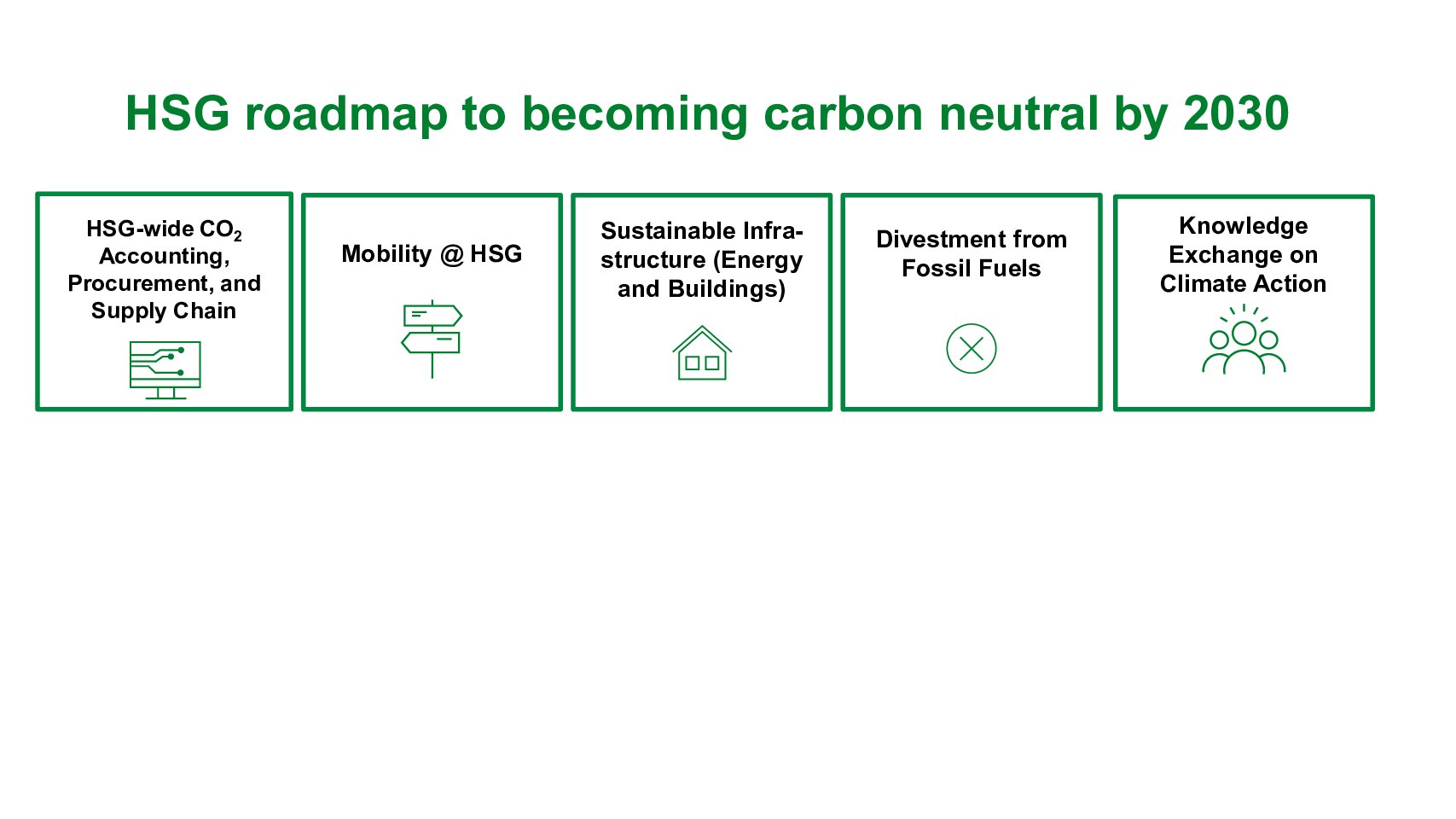Apart from reducing physical emissions on campus and along the supply chain, a university can also positively contribute to climate action by creating and sharing knowledge. As such, the University of St.Gallen (HSG) as a leading European business school is dedicated to raising awareness through research, teaching and executive education.
A number of faculty members have been doing research on connecting climate change to core business school topics such as finance, consumer behaviour, business models and innovation management. The University’s Institute for Economy and the Environment (IWÖ-HSG) has been a hub for sustainability, energy and climate research since its foundation in 1992, and more recently, several faculty positions in managing climate solutions, energy and sustainability management, climate finance, sustainability governance, and environmental economics have been created across different schools of HSG, all of which have a strong climate component.
In terms of teaching, the University is offering a highly popular certificate programme in Managing Climate Solutions (MaCS-HSG) and has been pioneering the award-winning CEMS Model UNFCCC course. An increasing number of elective courses on the Master’s level allow students from a wide range of programmes to acquire competences related to climate action. The objective is to also increase the portfolio of climate-related courses on Bachelor’s and Assessment levels. At all levels, there is very strong demand for student theses combining climate change and business topics.
In Executive Education, we offer dedicated CAS programmes and regular sustainability electives in our various (E)MBA programmes, and are currently launching an entirely new Executive MBA in collaboration with ETH Zürich (embaX) with a strong sustainability, energy and climate change component.
We also regularly exchange experiences with other universities embarking on the Race to Zero. In 2021, we held a Webinar on Net Zero Universities.

